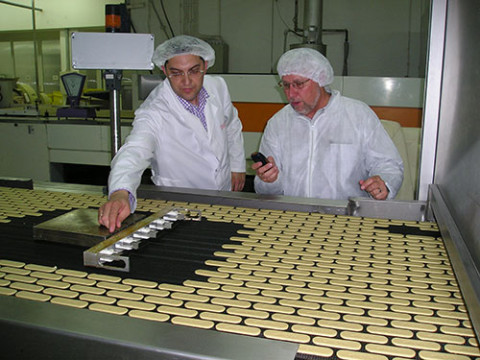Pathogens and similar health hazards can be introduced to your food via various routes, including ingredients, pests, unhygienic handling, and environmental factors. While aspiring for a sterile baking environment is ideal, the only way to be safe 100% is by abiding by the baking Kill Step study to ensure any health risks are killed during the baking process. Thermal profiling, oven monitoring, and heat transfer data collection are a few ways you can take a proactive stance against food-borne pathogens, preventing diseases before they become a safety failure statistic.
Calculating the Kill Step with the help of Reading Thermal’s SCORPION® 2 Data Logger and proprietary SCORPION® Software Version 8 (SV8) is as simplified and intuitive as you could need. Designed as plug-in adaptors, the data compiled from our Smart Sensors into the SCORPION® 2 Data Logger can be easily downloaded to an external PC, where the SCORPION® Software can analyze, organize, and calculate the Kill Step and produce the exact specifications your ovens need to follow to produce safe, high-quality, consistent products consistently.
Reducing Hazard Risks Via Kill Step Validation
Without understanding the environments of your commercial ovens, there’s no feasible way to guarantee consistent products in a sustainable setting. Kill Step validation is a critical aspect of your preventative control program, providing objective proof that your baking process neutralizes any harmful pathogens that could otherwise germinate within an improperly baked bun, pastry, cookie, cake, or other baked goods.
Aligning baking strategies with HACCP systems and FSMA standards starts with creating a uniform baking process. This is also the best way to cultivate consistency with your products, ensuring every batch uses the same conditions and specifications – no matter what. This is especially important when you use multiple ovens and lines to produce different baked goods. Every oven has different variables for baking, including varying levels of heat transfer, areas of high and low temperatures along the band, times for heat transfer, and more. This makes achieving Kill Step validation a challenge when you can’t guarantee the same outcomes across every batch, every time.
Uniform results require access to state-of-the-art commercial oven monitoring and thermal profiling data collectors. Reading Thermal’s SCORPION® 2 Data Logger and SV8 software are powerful tools designed with your safety needs in mind. Sensors can be plugged directly into the logger for seamless data collection, which can then be easily downloaded to a PC for real-time analysis of your baking processes.
Immediate access to precise measurements, gathered by Reading Thermal’s SCORPION® 2 Profiling System, means you can identify and eliminate dangerous flavors, toxins, and microorganisms in your foods before they pose a risk to your food safety measures. The thermal profile data collected and analyzed by our sensors can provide you with key insights that rationalize HACCP and other risk management strategies while increasing transparency between the public and your business.
A baking Kill Step study should be considered essential to reducing risk and maintaining regulatory compliance. Without it, there’s no feasible way to ensure safety or maintain company integrity—so why hesitate? If you’re interested in Reading Thermal’s services, call us at (610) 678-5890 Ext. 2, or contact us online for more details about our innovative products.

